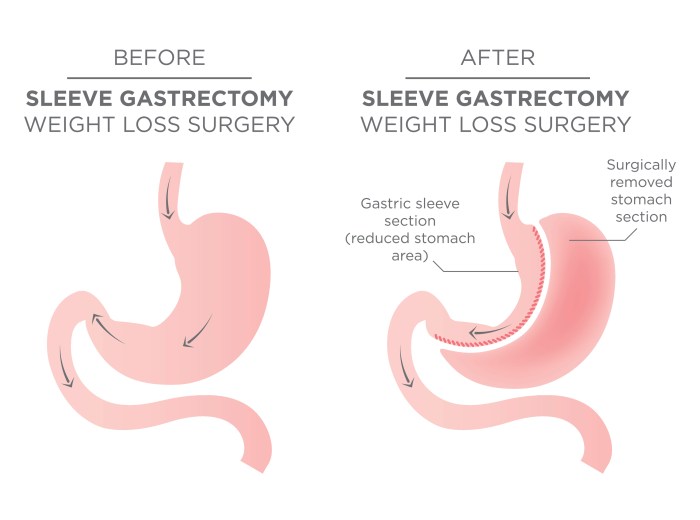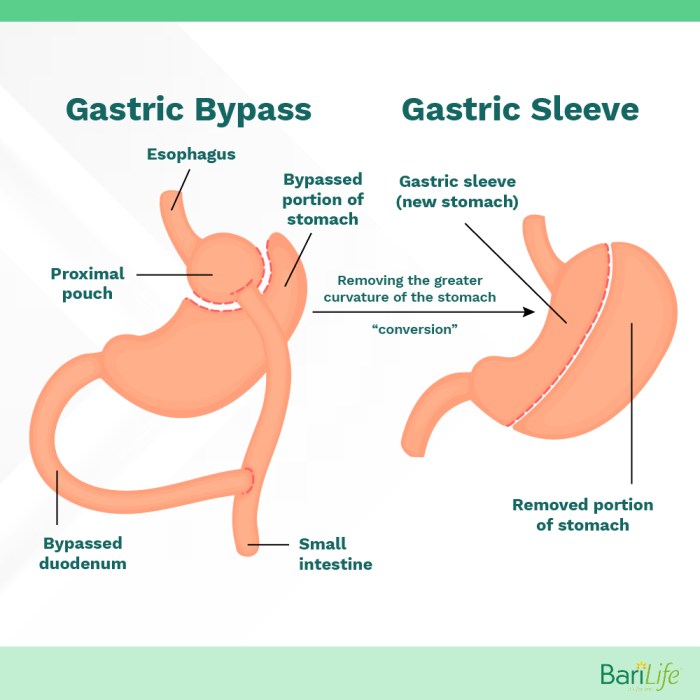Can i take antihistamine after gastric sleeve – Can I Take Antihistamines After Gastric Sleeve Surgery: A Comprehensive Guide
After undergoing gastric sleeve surgery, it’s essential to understand the implications of taking medications, including antihistamines. This guide delves into the complexities of antihistamine use, providing crucial information for patients seeking relief from allergies while prioritizing their post-operative well-being.
Drug Interactions
After gastric sleeve surgery, certain antihistamines may interact with other medications commonly prescribed. These interactions can affect the efficacy or safety of either medication.
- CYP450 inhibitors:Antihistamines metabolized by the CYP450 enzyme system, such as astemizole and terfenadine, may have increased blood levels when taken with CYP450 inhibitors, such as erythromycin or ketoconazole. This can lead to serious side effects, including cardiac arrhythmias.
- MAO inhibitors:Antihistamines with anticholinergic properties, such as diphenhydramine and chlorpheniramine, may interact with MAO inhibitors, causing hypertensive crisis or serotonin syndrome.
- Anticoagulants:Antihistamines may interact with anticoagulants, such as warfarin, by reducing their metabolism and increasing their anticoagulant effects.
- Sedatives:Antihistamines may potentiate the sedative effects of other sedatives, such as benzodiazepines or opioids.
Dosage Adjustments

Gastric sleeve surgery alters the absorption, metabolism, and excretion of medications, necessitating dosage adjustments for antihistamines.
- Orally administered antihistamines:Absorption of orally administered antihistamines may be reduced after gastric sleeve surgery due to decreased gastric emptying. Higher doses or alternative routes of administration may be necessary.
- Topical antihistamines:Topical antihistamines are not affected by gastric sleeve surgery and can be used as directed.
- Long-acting antihistamines:Long-acting antihistamines, such as loratadine and cetirizine, may have prolonged effects after gastric sleeve surgery due to reduced metabolism. Dosage adjustments may be necessary to avoid excessive sedation or other side effects.
Timing of Administration
The timing of antihistamine administration relative to meals and other medications can affect their effectiveness.
- H1-receptor antagonists:H1-receptor antagonists, such as diphenhydramine and loratadine, should be taken with food to minimize gastrointestinal side effects.
- H2-receptor antagonists:H2-receptor antagonists, such as famotidine and ranitidine, should be taken on an empty stomach to maximize absorption.
- Anticoagulants:Antihistamines should be taken at least 2 hours before or after anticoagulants to avoid potential interactions.
Side Effects and Monitoring

Antihistamine use after gastric sleeve surgery can be associated with side effects, including:
- Sedation:Antihistamines may cause drowsiness, especially in higher doses.
- Anticholinergic effects:Antihistamines with anticholinergic properties may cause dry mouth, blurred vision, and urinary retention.
- Cardiovascular effects:Antihistamines may prolong the QT interval, which can increase the risk of cardiac arrhythmias.
Patients should be monitored for these side effects and dosage adjustments made as necessary.
Alternative Therapies: Can I Take Antihistamine After Gastric Sleeve

In some cases, alternative therapies may be considered for managing allergy symptoms in patients who have undergone gastric sleeve surgery.
- Nasal corticosteroids:Nasal corticosteroids, such as fluticasone and mometasone, can effectively reduce nasal allergy symptoms without systemic side effects.
- Leukotriene modifiers:Leukotriene modifiers, such as montelukast and zafirlukast, can inhibit the release of leukotrienes, which are inflammatory mediators involved in allergy symptoms.
- Immunotherapy:Immunotherapy involves exposing the patient to increasing doses of an allergen to desensitize them over time.
The choice of alternative therapy depends on the individual patient’s symptoms and response to treatment.
Expert Answers
Can I take any antihistamine after gastric sleeve surgery?
Not all antihistamines are suitable after gastric sleeve surgery. It’s crucial to consult a healthcare professional for guidance on safe options.
How do I adjust the dosage of my antihistamine after surgery?
Dosage adjustments are necessary to ensure optimal effectiveness and minimize side effects. Follow the specific recommendations provided by your doctor.
When should I take my antihistamine in relation to meals?
The timing of antihistamine administration depends on the specific medication and your individual needs. Your doctor will provide tailored advice to maximize efficacy.
What are the potential side effects of antihistamines after gastric sleeve surgery?
Side effects may include drowsiness, dry mouth, and urinary retention. It’s important to monitor for these effects and report any concerns to your doctor.